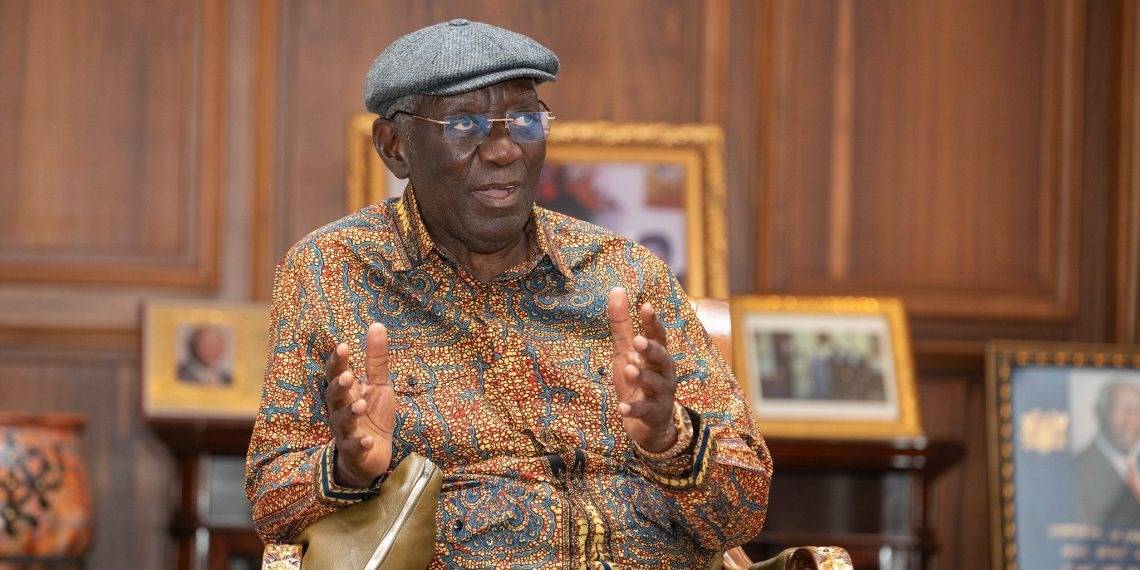Decision to contest as Independent cannot be deemed as cross-carpeting – Kufour to Bagbin
In a recent statement, former Ghanaian President John Agyekum Kufuor weighed in on the political discourse surrounding the choice of some members of Ghana’s Parliament to contest elections as independent candidates. Addressing Speaker of Parliament Alban Bagbin, Kufuor asserted that opting to run as an independent candidate does not necessarily equate to "cross-carpeting," or defecting to another political party. The comment sparked extensive debate on Ghana’s political scene, raising questions about party loyalty, individual political agency, and the potential effects on parliamentary dynamics.
The concept of cross-carpeting, which refers to switching allegiance from one political party to another, has long been a controversial issue in Ghanaian politics. Traditionally, such moves are viewed with suspicion, as they may signify instability within parties or opportunistic behavior by politicians. In Ghana’s democracy, crossing from one party to another can disrupt parliamentary structure and even affect governance. However, Kufuor emphasized that contesting as an independent is fundamentally different from cross-carpeting, as it does not entail allegiance to a competing party but rather reflects an individual's decision to pursue their political ambitions without party endorsement.
Kufuor argued that political parties exist to aggregate the voices and concerns of citizens and to provide a structured platform for governance. However, he also underscored that the Ghanaian constitution allows individuals to pursue their political paths as independent candidates. This right, he noted, is essential in any democratic setup, as it promotes a diversity of views and offers the electorate a broader range of choices. By this view, contesting as an independent candidate should be seen as exercising one's democratic right rather than a betrayal of party ideology.
Speaker Bagbin, known for his deep-rooted association with the National Democratic Congress (NDC), had previously expressed concern over what he described as increasing defections within Ghana's political space. According to Bagbin, the practice of contesting as an independent undermines party cohesion and could lead to fragmented representation in Parliament. He has argued that this trend could hinder collective decision-making, as independent candidates are not bound by the ideological frameworks of any particular party. Bagbin’s remarks imply that these independent decisions could weaken parliamentary stability and create difficulties in achieving consensus on national issues.
Kufuor countered Bagbin’s concerns, suggesting that Ghana’s democracy must be resilient enough to accommodate individuals who feel compelled to represent their constituencies independently. He suggested that in many cases, independent candidates may simply be responding to local political demands or disagreements with their party's policies rather than engaging in actions that would undermine democratic integrity. Kufuor stressed that instead of viewing such candidates as party defectors, political parties should see their candidacy as an opportunity to reassess their own structures and practices, especially when members feel unheard or unrepresented.
Additionally, Kufuor highlighted that independent candidates, once elected, often play unique roles in Parliament, offering fresh perspectives and sometimes serving as mediators in polarizing debates. He argued that Ghana’s democracy would benefit from a Parliament that represents a range of viewpoints, as this diversity could contribute to a more balanced and inclusive governance system.
In conclusion, Kufuor’s remarks highlight an essential tension within Ghanaian democracy: balancing party unity with individual agency. While political parties aim to ensure a unified front in Parliament, the choice of some members to pursue independent paths can reflect a healthy democratic expression. Ultimately, the decision to contest as an independent candidate, rather than an act of cross-carpeting, can be seen as a testament to Ghana’s evolving democratic landscape, one in which personal convictions and community demands can find representation. This nuanced perspective reinforces the importance of respecting individual political choices within the framework of Ghana’s democratic principles, fostering a more inclusive approach to national governance.




No comments yet
Be the first to share your thoughts!